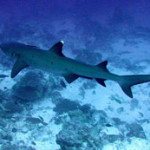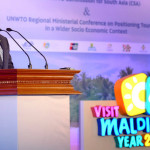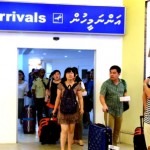The Minister of Fisheries and Agriculture Ahmed Shafeeu has suggested that the tourism industry might be “tapped” to improve the fortunes of the ailing fisheries sector.
“The internal market is there for agriculture and fisheries. The local demand for fish is huge, including resorts,” he said.
Shafeeu noted that there was potential in closer links between resorts and local producers, and that there had already been suggestions from some island communities that such links be further cultivated.
“The [fisheries] sector needs to be re-prioritised. Recently, the focus has been mainly on tourism. We are very vulnerable if we depend only on tourism,” said Shafeeu.
The most recent statistics from the Maldives Monetary Authority (MMA) have revealed that the volume of fish exports dropped by 63 percent in the twelve months from January 2011 to January 2012. The value of these exports dropped by 33 percent during the same period.
The statistics, provided by the Department of National Planning, show that tourism constituted around thirty percent of real GDP last year and is projected to represent a similar figure in 2012.
The fisheries industry is predicted to contribute just 1.1 percent of Maldives’ real GDP this year, dropping nearly two thirds from its 2006 contribution. The national significance of the industry however remains huge, providing employment to more than half of the population.
Potential issues that may act as potential barriers to the consumption of local fisheries produce in the resorts seem to be transport and product quality.
Deputy Tourism Minister Mohamed Maleeh Jamaal said that the opening of local airports and the development of transport may make it easier to increase the consumption of local produce in resorts.
He said that there had not been any research done on the exact patterns of consumption on resorts. The MMA figures show that the Maldives exported an average of 43 percent of its fish catch over the five years up to 2011.
“Currently, there are many challenges in the transportation of products,” said Maleeh.
“We hope domestic products can be consumed in our resorts. Fisheries have a high potential. All resorts consume a lot of fish. I think the demand for locally caught fish is very high,” he added.
Maleeh said that the sustainability of Maldivian fishing techniques were a strong selling point of the nation as a tourist destination. He saw this as part of what makes the Maldives unique.
The sustainability of centuries-old ‘pole and line’ fishing methods is not only considered a source of national pride, but also attracts buyers from premium supermarkets in the UK and Europe.
Shafeeu said that the resorts often imported only local reef fish, choosing to import other high value fish products which could potentially be available domestically.
A senior management source at one resort told Minivan News that they did source local fisheries’ produce in their restaurants and in their staff canteen, owing to the low cost.
“We don’t buy from outside,” said the source, although they said the choice was often limited: “It’s not every day we can get what we want.”
They added that this arrangement was possible due to the location of their resort, in North Male’ Atoll. For more isolated resorts, they explained, it is not viable for local fishermen to bring fresh fish every day.
This issue was also touched upon by Maleeh: “Resorts need continuity and consistency of supply,” he said, adding, “The quality of products needs to be maintained.”
Describing alternative methods of improving the prospects of the industry which has suffered greatly from foreign competition in nearby waters, Shafeeu raised the issue of the impact the “major shortage” of fresh ice had on the quality of produce.
“One of the major concerns is getting good ice across the country,” said Shafeeu, explaining that the delays imposed while vessels waited for ice, as well as the potential impact on the quality of the catch, were “not acceptable”.
He added that with the budget being “very limited” he was exploring the possibility of converting funds from other projects to meet this need.
Investment in ice processing plants was described as one of the areas he hoped would benefit from the resumption of fishing subsidies was announced by President Dr Mohamed Waheed Hassan last month.
The subsidies, amounting to Rf100million a year (US$6.5million), are yet to receive official approval from the Majlis, although Shafeeu said that the chair of the Finance Committee had indicated that a consensus in favour of subsidies had been reached.
He said that he had instructed ministry staff to advertise the availability of the subsidies so that fishermen could register and receive their vouchers as soon as the Majlis reconvened.
When asked if he felt the fishing industry to be in terminal decline, Shafeeu replied that he did not think this was the case, believing that the industry could still play a prominent role in the country’s economy “if we give it enough attention”.
 (0)Dislikes
(0)Dislikes (0)
(0)



